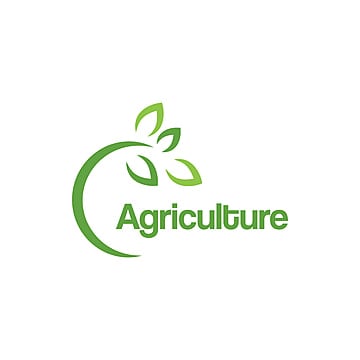B.Sc. Agriculture
The science of farming, crop production, and agricultural practices are the main topics of the B.Sc. Agriculture undergraduate curriculum. Furthermore, The goal of the four-year program is to give students a thorough understanding of modern agricultural techniques, cutting-edge technology, and sustainable farming approaches. Consequently, Numerous topics are included in the curriculum, such as plant pathology, horticulture, soil science, agronomy, and agricultural economics. However, Students gain knowledge of crop genetics, pest management, current farming methods, and agricultural resource management. Additionally, In order to increase agricultural productivity, the program also highlights the significance of research, innovation, and technological application.
Consequently, An essential component of the course is practical training, which students receive through field trips, internships, and lab work. Moreover, This helps them obtain real-world experience. There are numerous employment options for B.Sc. Agriculture graduates in both the public and private sectors. However, Agronomists, horticulturists, farm managers, agricultural officers, and professions in agricultural research and development are among the jobs they can pursue. Furthermore, For those who are interested in pursuing further education or specific areas of agriculture, like plant breeding, soil conservation, and agricultural biotechnology, the curriculum offers a solid foundation.

B.Sc. Agriculture Courses
Additionally, B.Sc. Agriculture is an undergraduate degree program that focuses on the study of agricultural science and related disciplines. However, It typically spans four years and covers a wide range of subjects essential for modern agriculture. Furthermore, Here’s an overview of the core and elective subjects you might encounter in a B.Sc. Agriculture program:
Core Subjects:
- Principles of Agronomy: Study of crop production techniques, soil management, and the environmental factors affecting agriculture.
- Soil Science: Understanding soil properties, classification, fertility, and the management of soil resources.
- Genetics and Plant Breeding: Study of genetic principles, plant breeding techniques, and the development of new crop varieties.
- Agricultural Economics: Economics applied to agriculture, including farm management, agricultural policies, and rural development.
- Horticulture: Study of fruit, vegetable, and ornamental plant cultivation.
- Entomology: Study of insects, their biology, and their impact on crops and livestock.
- Plant Pathology: Study of plant diseases, their causes, symptoms, and control measures.
- Agricultural Extension: Methods of disseminating agricultural knowledge and technologies to farmers.
- Agricultural Engineering: Application of engineering principles to agriculture, including farm machinery, irrigation, and soil conservation.
- Crop Production Technology: Techniques and practices involved in the production of major crops.
- Animal Husbandry: Study of livestock management, breeding, and production.
- Environmental Science: Study of environmental issues related to agriculture, including sustainability and conservation.
- Irrigation and Water Management: Techniques for efficient water use in agriculture, including irrigation methods and water conservation.
Elective Subjects:
- Organic Farming: Principles and practices of organic agriculture.
- Agroforestry: Integration of trees and shrubs into agricultural landscapes.
- Post-Harvest Technology: Techniques for handling, processing, and storing agricultural produce.
- Agribusiness Management: Study of business practices related to agriculture, including marketing, finance, and supply chain management.
- Biotechnology in Agriculture: Application of biotechnological tools in crop and animal production.
- Fisheries Science: Study of fish cultivation, breeding, and management.
- Sericulture: Study of silk farming and silk production.
- Renewable Energy in Agriculture: Use of renewable energy sources like solar and wind energy in agriculture.
B.Sc. Agriculture Scope
Roles in agricultural research, extension services, and agribusiness management are among the many opportunities that a Bachelor of Science in Agriculture degree offers in the public and commercial sectors. Additionally, Graduates can contribute to sustainable farming techniques by working in fields like crop production, soil science, and agricultural biotechnology. Consequently, Opportunities can also be found in financial institutions, rural development initiatives, and agro-industries. Thus, The demand for experts in this industry is rising as the world places more emphasis on sustainable agriculture and food security. Moreover, Advanced jobs in agricultural sciences and management can be attained through additional coursework and specializations.
Careers & Opportunities
A B.Sc. in Agriculture opens up a wide range of career opportunities in various sectors. Moreover, Here are some potential career paths and opportunities for graduates:
- Agricultural Scientist: Conduct research to improve crop yield, pest control, soil quality, and more. Work often involves field studies and lab experiments.
- Farm Manager: Oversee the daily operations of farms, including crop production, livestock management, budgeting, and staff management.
- Agricultural Extension Officer: Work with farmers to provide advice on best practices, new technologies, and government schemes to enhance productivity and sustainability.
- Agribusiness Manager: Manage operations in agribusiness firms, such as seed companies, fertilizers, agrochemicals, and food processing units.
- Soil Scientist: Study soil properties and manage soil health to enhance agricultural productivity. This role may involve field sampling and lab analysis.
- Plant Breeder/Geneticist: Develop new plant varieties with improved traits such as resistance to diseases, pests, or environmental conditions.
- Agricultural Consultant: Provide expert advice to farmers, agribusinesses, and organizations on various aspects of agriculture, including technology adoption and management practices.
- Quality Assurance Officer: Ensure that agricultural products meet quality standards and regulatory requirements. This role may involve testing and inspecting products.
- Horticulturist: Specialize in the cultivation and management of fruits, vegetables, flowers, and ornamental plants.
- Agricultural Economist: Analyze economic aspects of agriculture, including market trends, policy impacts, and economic viability of farming practices.
- Rural Development Officer: Work on projects aimed at improving the quality of life in rural areas through agricultural development, infrastructure improvement, and social programs.
- Agricultural Journalist/Writer: Report on agricultural issues, trends, and innovations for media outlets, magazines, and websites.
- Entrepreneur: Start your own business in agriculture, such as a farm, agritech startup, or consultancy firm.
- Government Jobs: Various positions in government agencies related to agriculture, such as the Department of Agriculture, State Agriculture Universities, and research institutions.
- International Organizations: Work with organizations like the FAO (Food and Agriculture Organization) or NGOs focusing on agricultural development and food security.
- Education and Training: Teach agricultural subjects at schools, colleges, or training institutes.
Pursuing further studies, such as a Master’s or Ph.D. in specialized fields, can also open up advanced career opportunities and research roles. Additionally, internships and practical experience can significantly enhance job prospects and career growth.
Conclusion:
Firstly, Students who pursue a Bachelor of Science in Agriculture degree will gain a thorough understanding of agricultural sciences, including crop production, soil management, and agricultural technology. Additionally, The curriculum is designed to prepare graduates for a variety of professions in farming, research, and agribusiness by emphasizing both theoretical learning and practical skills. Moreover, with the increasing demand for food around the world and advancements in agricultural methods, this degree opens up a wide range of job options in both the public and private sectors. Consequently, graduates are well-positioned to contribute to innovation and sustainable agriculture. However, For individuals interested in enhancing agricultural productivity and addressing issues related to food security, a B.Sc. in Agriculture offers a solid foundation.


